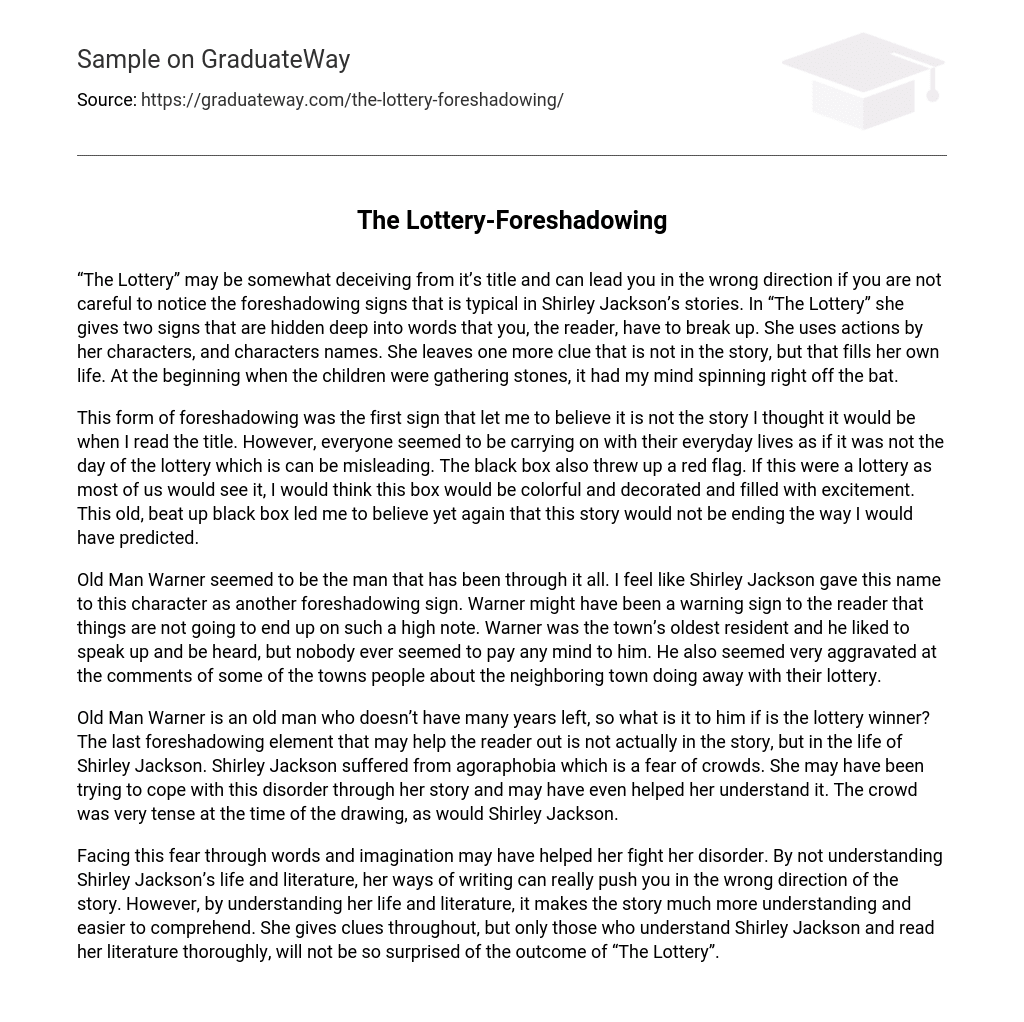“The Lottery” can be misleading based on its title, but careful attention to the foreshadowing signs typical in Shirley Jackson’s stories can prevent readers from being led astray. In this story, the author provides two hidden signs that require the reader’s scrutiny – actions taken by the characters and their names. Additionally, an additional clue lies outside the story, but is indicative of Jackson’s own life. From the start, as the children gather stones, my mind was immediately captivated.
This form of foreshadowing was the initial indication that made me realize it is not the narrative I expected when I read the title. However, everyone appeared to be going about their normal routines as if it was not the day of the lottery, which can be deceptive. The black box also raised a concern. If this was a lottery as most of us would envision, I would assume this box would be vibrant, ornate, and brimming with anticipation. This aged, worn-out black box once again led me to believe that this story would not conclude as I had predicted.
Old Man Warner appeared to be a seasoned individual who had experienced many things. It seems that Shirley Jackson purposely named this character in order to add another hint of foreshadowing. Warner could potentially be a cautionary figure, indicating to the reader that the outcome of events may not be positive. As the oldest resident of the town, Warner frequently voiced his opinions and desires to be heard, yet nobody ever seemed to take him seriously. Additionally, he displayed great annoyance towards the remarks made by certain townspeople regarding the neighboring town’s decision to eliminate their lottery.
Old Man Warner, an elderly man with limited time left, may not be concerned about being the lottery winner. Another element foreshadowing the story can be found in Shirley Jackson’s personal life. Shirley Jackson, who had agoraphobia (fear of crowds), possibly used this story as a way to cope with and gain a deeper understanding of her disorder. The crowd during the drawing was highly stressed, much like Shirley Jackson herself.
In order to combat her disorder, facing it head-on with words and imagination proved helpful. Misinterpreting Shirley Jackson’s life and literature could lead one astray in understanding her writing style. However, comprehending both her life and literature greatly aids in understanding the story. She drops hints along the way, but only those familiar with Shirley Jackson and well-versed in her literature will not be caught off guard by the ending of “The Lottery.”





